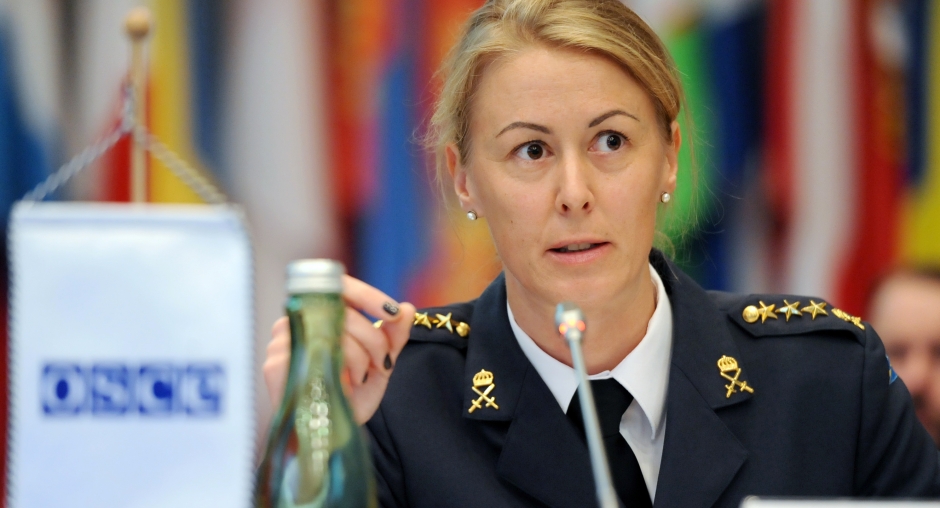



| Wednesday, 07 October 2015. | |
| Gender equality in the military enhances security for all, say participants of joint OSCE Forum for Security Co-operation-Permanent Council meeting | |
| + larger fontnormal font- Smaller font |
 Implementing gender equality in the military is a work in progress but further efforts are still needed to improve the participation of women in the decision-making in the armed forces, said experts who took part in the joint session of the OSCE Forum for Security Co-operation (FSC) and the Permanent Council today in Vienna. Implementing gender equality in the military is a work in progress but further efforts are still needed to improve the participation of women in the decision-making in the armed forces, said experts who took part in the joint session of the OSCE Forum for Security Co-operation (FSC) and the Permanent Council today in Vienna.The joint session organized under the Norway's Chairmanship of the FSC and Serbia's 2015 OSCE Chairmanship provided a platform for sharing best practices in the OSCE area. The discussion touched upon the practical implementation of the UN Security Council Resolution (UNSCR) 1325 on Women, Peace and Security, which this year marks its 15th anniversary. UNSCR 1325 is a landmark document addressing the disproportionate and unique impact of armed conflict on women, recognizing the importance of women's equal participation in maintaining and promoting peace and security, and the need to enhance protection of women, girls and their rights. The discussion highlighted the importance of a comprehensive approach in implementing gender equality by establishing broad co-operation with other government bodies as well as with civil society. Hanna Syse, Senior Advisor with the Norwegian Ministry of Defence, noted that gender equality improves the diversity of the armed forces and as a result enhances their operational capability making them more resilient and flexible. Bringing the responsibility for gender up the chain of command plays an important role in effective implementation of gender equality, said Louise Olsson, Head of Research and Policy on Gender, Peace and Security at the Folke Bernadotte Academy. Referring to the lessons learned from the Gender Coach Programme introduced in the Swedish Armed Forces, Olsson said: "It is a leadership programme which provides the highest leadership with knowledge and skills on gender equality and UN resolutions on Women, Peace and Security in order to strengthen the organization". Talking about Serbia's achievements in implementing UNSCR 1325 Brigadier General Slobodan Joksimović said that women today are represented in all categories of personnel. He also noted that one of the priorities in the coming period is to create conditions for achieving the higher participation of women in decision-making processes. Other speakers included Admiral Jonas Haggren, Head of the Policy and Plans Department, and Captain Anna Björsson, Gender advisor and Project co-ordinator for the Gender Coach Programme from the Swedish Armed Forces Headquarters. Photo by:OSCE/Micky Kroell |